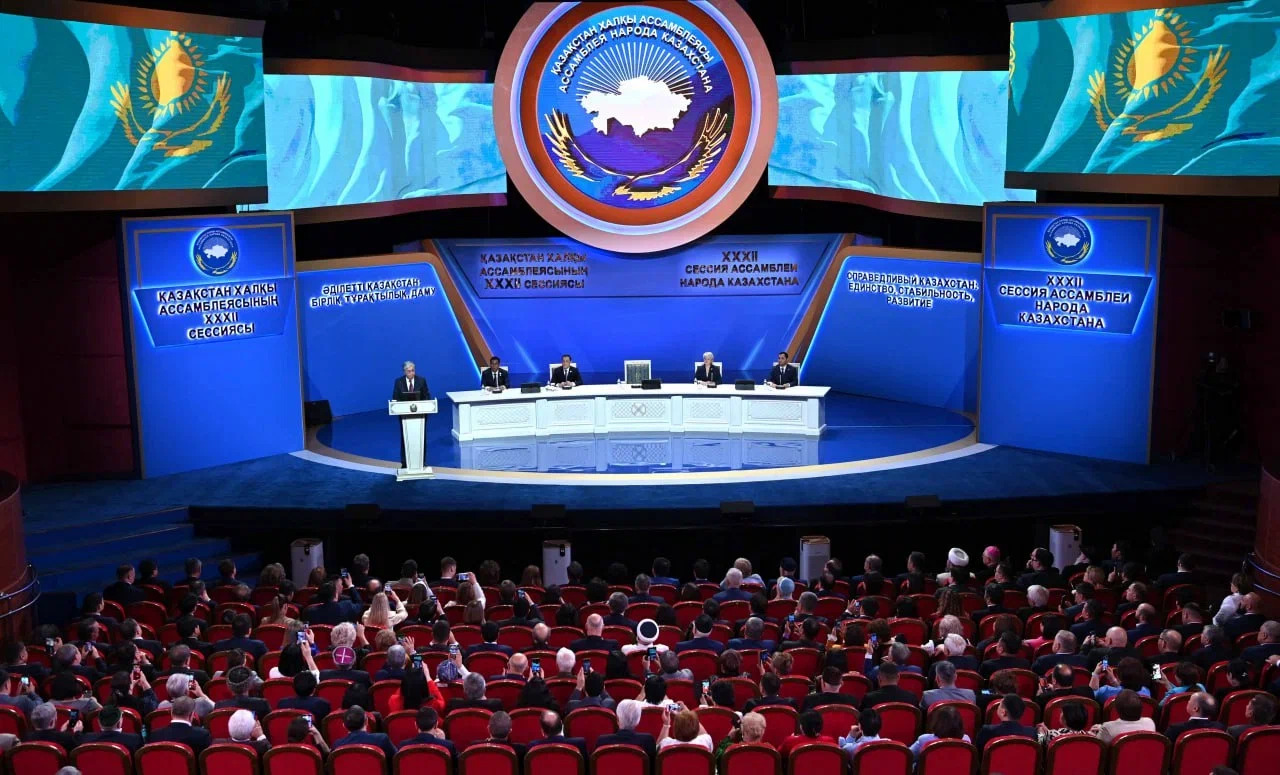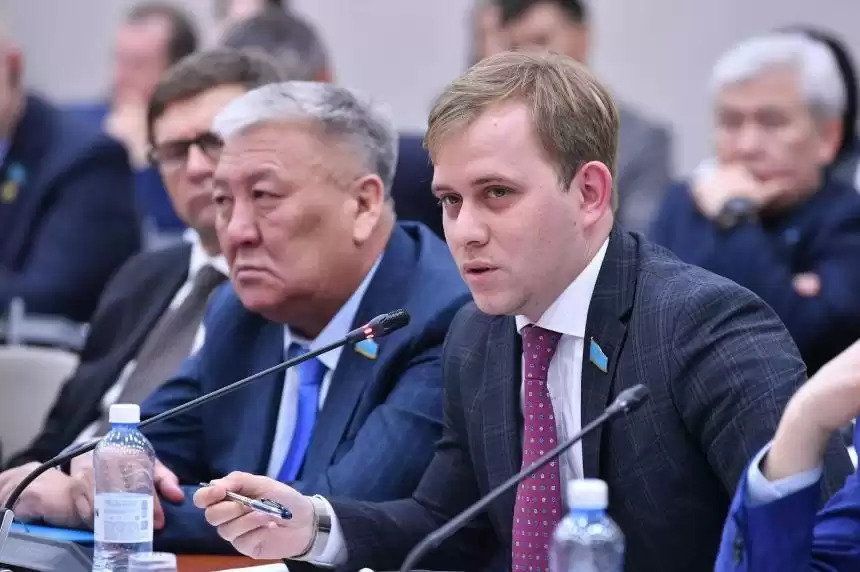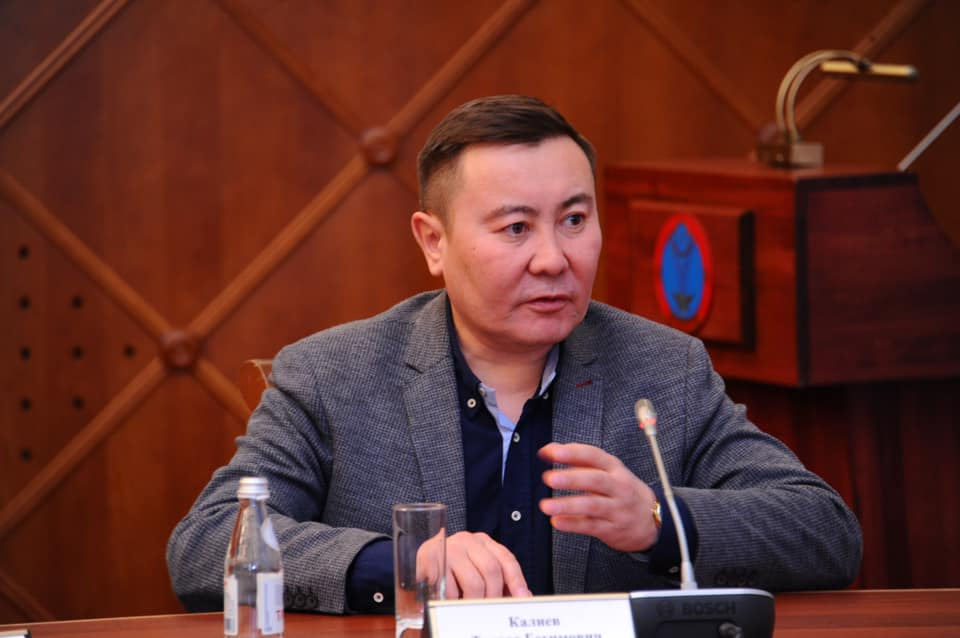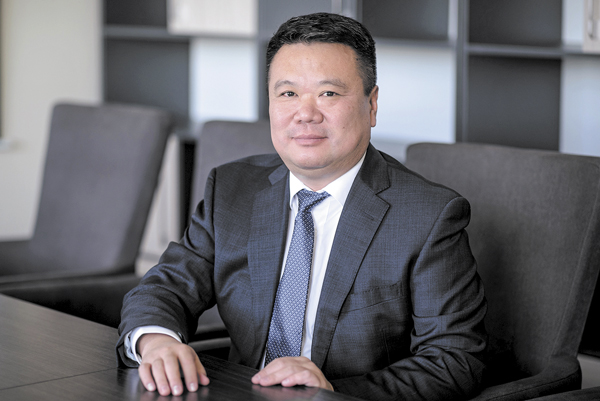ASTANA – Kazakhstan is on the path of modernizing its political system and economic structure to adjust to the ever-changing circumstances amid geopolitical shifts, wrote Nikita Shatalov, a member of the Mazhilis, the lower chamber of the Kazakh Parliament, in his Telegram channel on April 27. He was reacting to President Kassym-Jomart Tokayev’s speech at the 32nd Session of the Assembly of the People of Kazakhstan (APK).

32nd Session of Assembly of People of Kazakhstan on April 27. Photo credit: Assembly of People of Kazakhstan.
Tokayev, according to Shatalov, rightly underlined the vital role of the APK in local self-government and in resolving dense living conditions of diverse ethnic groups, particularly in rural areas.
“This is a general trend related to the decentralization of management at all levels, as well as an increase in diversity and representation of interests,” he wrote.
Shatalov also addressed the strengthening of civic identity, outlined by Tokayev in his address.

Nikita Shatalov. Photo credit: Kazinform
“This is not an easy path to take amid information wars, which are also causing havoc in our society. However, it is critical to recognize our position as a political nation. We are, first and foremost, a nation bound together by shared symbols and a way of life developed in a multicultural environment,” he wrote.
According to Shatalov, the Kazakh nation’s fusion of many cultures and languages makes the country stronger and more resilient in the face of various crises, supporting the resolution of any difficulties, regardless of their complexity.
Andrey Shin, chairman of the Almaty Korean National Center, a member of the Almaty maslikhat (local assembly), and president of the Shin-Line group of companies, echoed Shatalov.

Talgat Kaliyev. Photo credit: Kaliyev’s Facebook Page.
Shin told Kazinform Kazakhstan found a winning formula to develop a well-balanced interethnic policy in the early days of its independence. He noted that following the fall of the Soviet Union, sovereign countries proposed advanced forms of interethnic relations and affirmed the equality of ethnic groups, languages, and cultures in their constitutions. Yet, many of them faced interethnic conflicts.
“As we saw later, no efficient mechanisms for implementing such declarations were established, which is why interethnic conflicts occurred. Kazakhstan avoided this by relying on the APK as a stabilizing institution. As a result, our country’s interethnic harmony policy has shown to be highly effective,” Shin said.
In his speech, Tokayev stressed the importance of maintaining unity, committing to preserving peace, and not falling into the trap of “foreign information wars or ideological disputes” to strengthen the Kazakh nation.
According to Shatalov, the country will be pragmatic and will focus solely on its national interests, regardless of what is going on around it, which is critical in today’s geopolitical context. He also stated it is crucial to follow Tokayev’s caution not to fall for provocations aimed at destroying the Kazakh society.
President Tokayev also mentioned in his speech that the Kazakh language will be a crucial component of the country’s policy. He emphasized that “learning and striving to master the state language must become an everyday norm in our society.”
“The Kazakh language will unite Kazakh citizens and create trust in one another. Demographics will drive a rise in the use of the Kazakh language. This is a deep social trend. Bilingualism will soon become the norm for most Kazakh citizens,” Shatalov wrote.

Andrey Shin. Photo credit: holodinfo.ru
Director of the Institute for Applied Ethnopolitical Research Talgat Kaliyev wrote on his Facebook page that the state language is becoming one of the key indicators of civic identity, with discussions around it being neither ethnic or cultural, but rather directly civic.
“For this reason, claims against Russian-speaking Kazakhs are frequently made. It is worth noting that they occasionally originate from Kazakh-speaking members of other ethnic groups,” he wrote.
Kaliyev noted that while organizing language learning, it is important to ensure the availability of high-quality content in Kazakh, including timely dubbing of international films, translation of renowned world literature, and newly published bestsellers.
According to him, the country should not do this for profit but rather fund all efforts in this field until the state language becomes dominant in all aspects of life in Kazakhstan.

